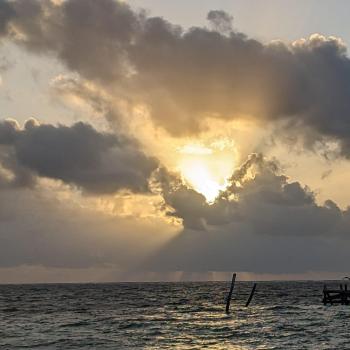We are taught early on that to have an ambition and to work toward it is industrious and admirable; that this is how we contribute to the world and move ahead. In and of itself, this is true. To build toward something is a healthy way to channel our need to be creative and to stay connected. But along the way, we often incubate a self-centeredness that breeds like bacteria in the dark corners of our psyches and something else happens. We begin to associate getting what we want with success and not getting what we want with failure. We begin to see ourselves as little gods who create everything out of nothing. We begin to have an expectation that we can will things to happen, that we have some right to control events. We are deemed skillful if we can steer people without their knowledge. Soon we wake with a sense of entitlement: that we have a right to have things go our way; a right to get what we want; a right to steer people and events toward our will.
Of course, life has other things to say about all this. Some of us may be able through skill and hard work to get what we want for a while. Some of us may even be lucky and get what we want a little while longer. But sooner or later, everyone will face not getting what they want. How we respond to this unavoidable moment determines how much peace or agitation we will have in our life. In truth, this is the moment that opens all others. For it is our acceptance of things as they are and not as we would have them that allows us to find our place in the stream of life. Free of our entitlements, we can discover that we are small fish in the stream and go about our business of finding the current.
This deeper chance to shed our willfulness doesn’t preclude our sadness and disappointment that things aren’t going the way we had imagined. But when we stay angry and resentful at how life unfolds beyond our will, we refuse the gifts of being a humble part in the inscrutable whole. When we stay angry and resentful that—and you can fill in the blank—the stock market didn’t reward our conscientious investing or the hurricane destroyed the truck we were going to inherit or the promotion we earned was given to someone else or the person we love so deeply doesn’t care in the same way, we risk getting stuck.
It doesn’t matter what you do or who you are—whether you are a world statesman or an auto mechanic or a web designer or a struggling artist—the wonder and resilience of being aligned with the miracle of life waits on the other side of this inevitable disappointment of ego. It is not that we need to be broken to know joy, but that we need to be broken of our willfulness which like a screen keeps the light and wind from filling our face.
When we can stop blaming others or nature or God for not getting what we want and be honest about what this inevitable rearrangement does to us, then humility and compassion are possible. The question waiting beneath all our entitlements and disappointments is: What do we truly need other than to wake and how can we share this treasure? This is not unique to us or our times. It is an archetypal passage. Strangely, harshly, beautifully, life begins when the story we’ve made up to bridge the unknown falters.
Eventually, we are asked to undo the story we’ve been told about life—or the story we have told ourselves—so we might drop freshly into life. For under all our attempts to script our lives, life itself cannot be scripted. It’s like trying to net the sea. Life will only use our nets up: tangle them, sink them, unravel them, wear them down, embed them in its bottom. Like the sea, the only way to know life is to enter it. How then do we listen below our willfulness?
















